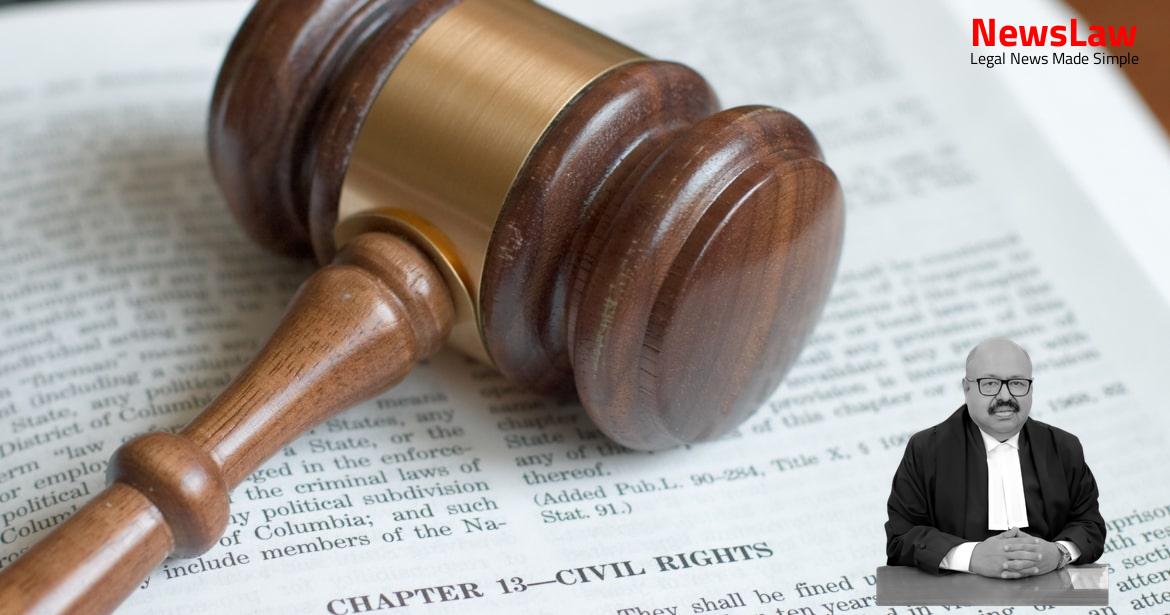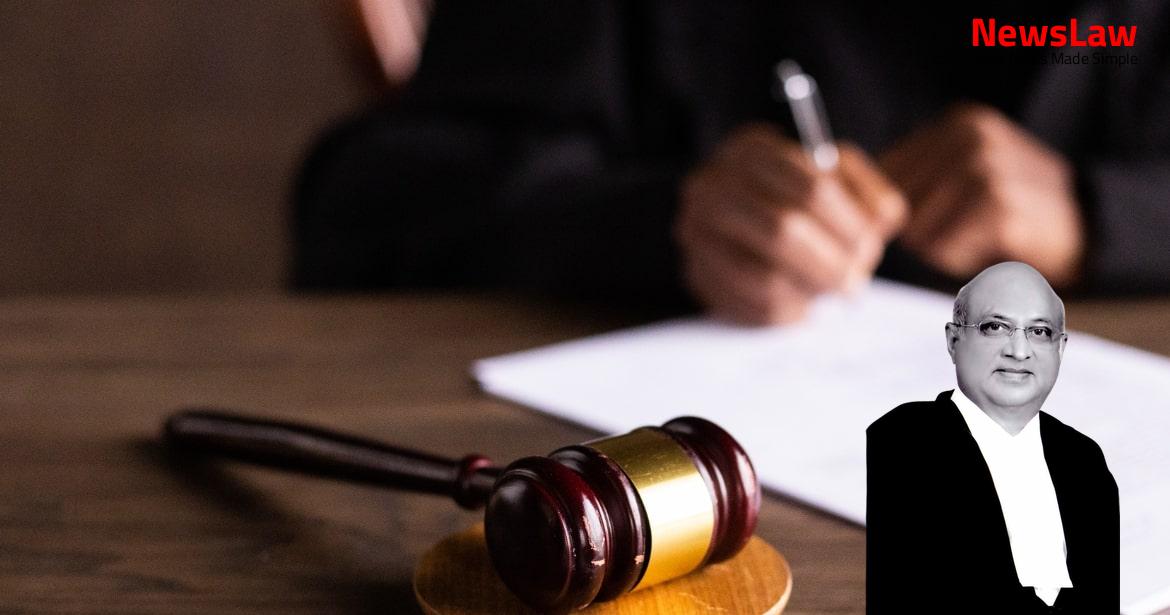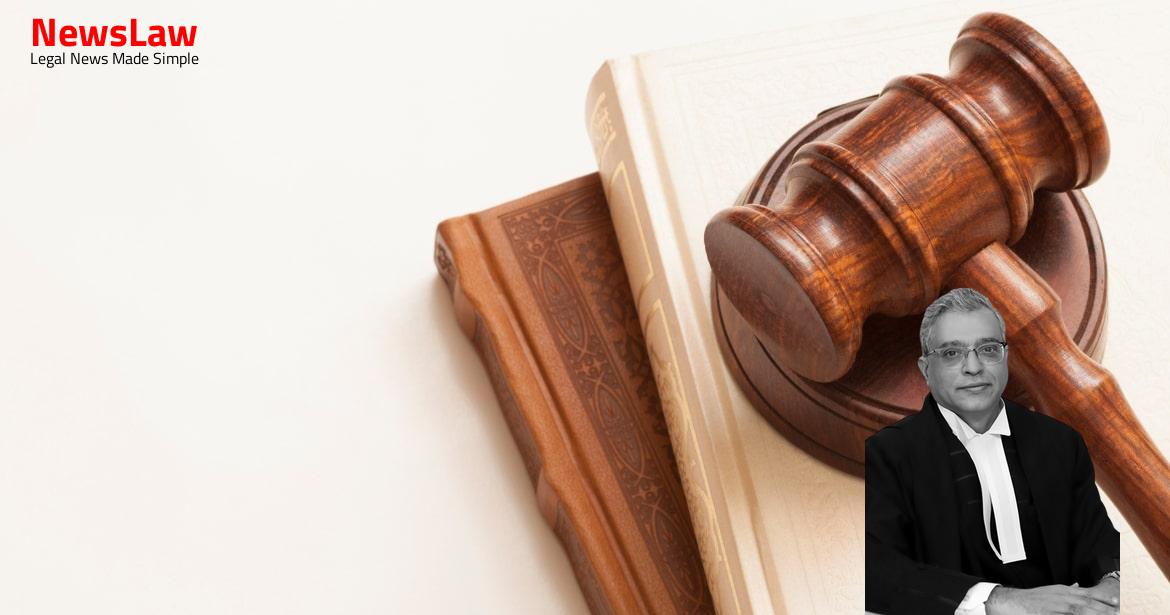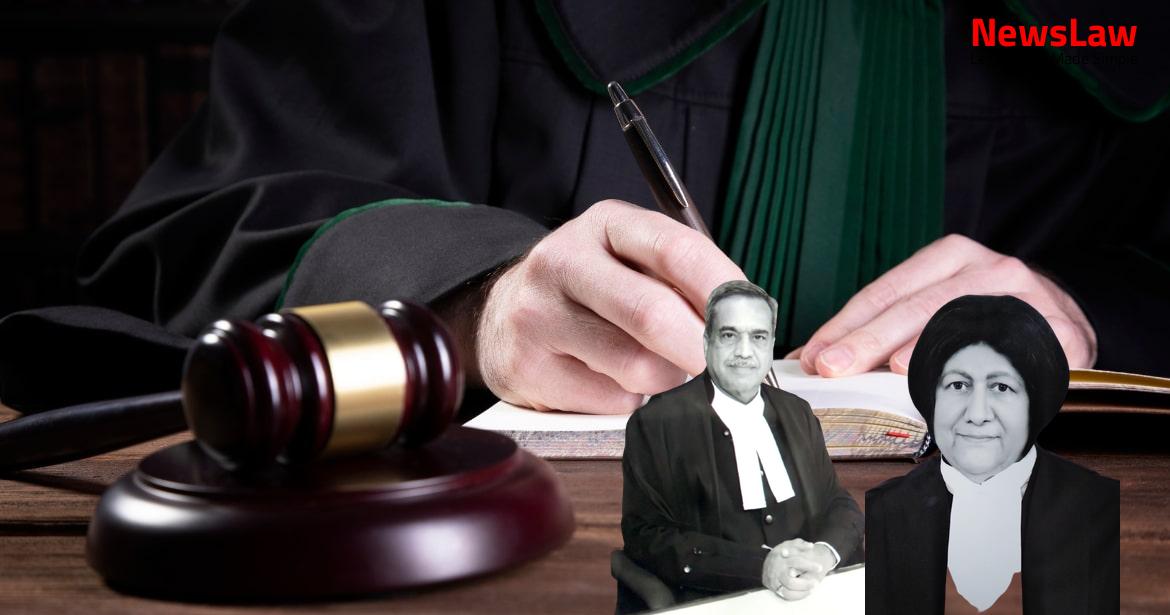Explore the detailed legal examination of novation and arbitration clauses in a recent court case. The focus is on understanding how the court navigated through complex contractual disputes, shedding light on the significance of upholding integrity in alternative dispute resolution mechanisms. Diving into the intricacies of legal analysis offers valuable insights for legal professionals and enthusiasts seeking to expand their knowledge in this domain.
Facts
- Prem Prakash incorporated Asian Films Laboratories Private Limited in 1971 with personal funds
- Shares were distributed to family members without receiving consideration
- Reuters approached Prem Prakash for equity investment and collaboration with active management role
- Sanjiv Prakash played a significant role in the growth of the company
- Memorandum of Understanding (MoU) was signed by the Prakash Family in 1996
Also Read: Interpretation of Section 43B: Debentures vs. Interest Payment
Arguments
- Mr. Nayar’s plea that the dispute being about shares in an Indian company to be resolved by London Court of International Arbitration as per English law, contracting out of Indian Law is opposed to public policy was not appealing.
- The issue of novation is complex and arguable, dependent on various clauses of the MoU and the SHA when construed with surrounding circumstances.
- The fact that a family settlement was acted upon resulting in an amendment of the Articles of Association soon after the MoU was entered into was missed by the learned Single Judge.
- Recent judgments indicate that unless an ex facie case proves no arbitration agreement exists, the parties must be referred to arbitration, leaving complex questions to be decided by an arbitral tribunal.
- Referring to MoU, SPA, and SHA, it was argued that these contracts were separate, with separate parties involved.
- The MoU was superseded when its clauses became part of the Articles of Association, and changes in management took place post the SHA.
- Clit 11.2 of the SHA established that the MoU was superseded.
- Various judgments were cited in favor of the proposition that the MoU was novated by the SHA, emphasizing ‘entire agreement’ clauses.
- The absurdity of family disputes being arbitrated by a London court when all members resided and worked in India was stressed upon.
- Clause 28 of the SHA clarified that the agreement contained in the SHA, SPA, and ancillary agreements was with respect to a different subject matter than the MoU.
- The MoU’s clause regarding shares being offered/sold/bequeathed only to specific parties indicated the applicability of the arbitration clause in the MoU.
- It was argued that the SHA could not override the MoU as the latter predated Reuters’ involvement.
- The Court emphasized upholding the integrity of arbitration as an alternative dispute resolution mechanism and not engaging in a mini trial.
- Sanjiv Prakash’s initial response was not to rely on a novated MoU
- He chose to argue that the unstamped document should not be considered as evidence
Also Read: Ensuring Transparency in Electoral Processes
Analysis
- The Prakash family, owning 51% shareholding, was to divest 49% to Reuters as per the agreements.
- The MoU and SHA agreements were in force, with the SHA superseding the MoU.
- Inter-se rights and obligations of the Prakash Family were governed by these agreements.
- The court ruled on the plea of ‘kompetenz-kompetenz’ and the application of Section 11(6A) of the 1996 Act.
- The court’s jurisdiction under Section 11 was limited to examining the existence, not the validity, of an arbitration agreement.
- The appointment of an arbitrator was deemed separate from issues of jurisdiction and non-arbitrability.
- The arbitration agreements in place were subject to the Arbitration Act and the Limitation Act.
- The court’s role was to refer disputes to arbitration unless clearly time-barred or non-arbitrable.
- Various agreements and amendments were made reflecting the shareholding divestment and management changes.
- Disputes were raised regarding breaches of share purchase rights and novation of agreements.
- The MoU is binding on all heirs, successors, and assigns of P.P., D.P., S.P., and S.K.
- Clause 11.2 outlines the rights of Non-Defaulting Shareholders in case of a Default Event involving a Shareholder.
- Clause 12.1 allows Reuters to require other Shareholders to purchase its shares if holding the shares becomes unlawful or impractical.
- The Agreement will continue as long as any Prakash Family Shareholders and any member of the Reuters Group hold shares.
- In the event of selling shares, certain conditions apply such as offering shares to specific parties and determining the number of directors based on Percentage Interest.
- The termination clause specifies the conditions under which the Agreement will cease to be in effect.
- Legal disputes are to be resolved amicably and then referred to arbitration if necessary, following a specific procedure.
- Definitions for terms like ‘Artificial Deadlock’ and ‘Management Deadlock’ are provided.
- Transfer of shares, quorum for meetings, and matters requiring special majority are detailed in various clauses.
- The governing law of the Agreement is India, except for arbitration which falls under the laws of England.
- The entire agreement clause states that the Agreement supersedes any prior agreements or understandings.
- The existence and validity of an arbitration agreement are intertwined, and an arbitration agreement does not exist if it is illegal or does not satisfy mandatory legal requirements.
- Invalid agreement is no agreement.
- The court at the reference stage exercises judicial powers.
- The examination at the referral stage is to weed out manifestly and ex facie non-existent and invalid arbitration agreements.
- The court has the power to reject an application for reference when the arbitration clause is with a minor, lunatic, or the only claim seeks a probate of a will.
- Limited, yet effective intervention by the court at the referral stage is acceptable as it does not obstruct but effectuates arbitration.
- The court’s intervention saves costs and prevents harassment of objecting parties when there is no justification and good reason to accept the plea of non-arbitrability.
- The court’s examination focuses on determining the existence and validity of the arbitration agreement within the bounds of the law.
- An agreement evidenced in writing has no meaning unless the parties can be compelled to adhere and abide by the terms. A party cannot sue and claim rights based on an unenforceable document.
- The court’s prima facie review of existence includes validity and is justified to ensure the integrity and efficacy of arbitration as a dispute resolution mechanism.
Also Read: Limitations of Court’s Power in Modifying Arbitral Awards
Decision
- Agenda Items 4 and 8 from the Board Meeting scheduled for 15.01.2020 remain deferred until the arbitrator makes a decision.
- The deferral is subject to the arbitrator issuing interim orders or a final Award depending on Section 17 of the 1996 Act.
- Civil Appeal No. 975 of 2021 has been allowed as specified.
- Civil Appeal No. 976 of 2021 has been disposed of in line with the directions provided.
- The judgment of the High Court is set aside, and the parties are referred to arbitration under a sole arbitrator, Justice Aftab Alam.
- The arbitrator is to decide the dispute between the parties without considering any observations made by the Court, which are only preliminary.
Case Title: SANJIV PRAKASH Vs. SEEMA KUKREJA (2021 INSC 229)
Case Number: C.A. No.-000975-000975 / 2021



